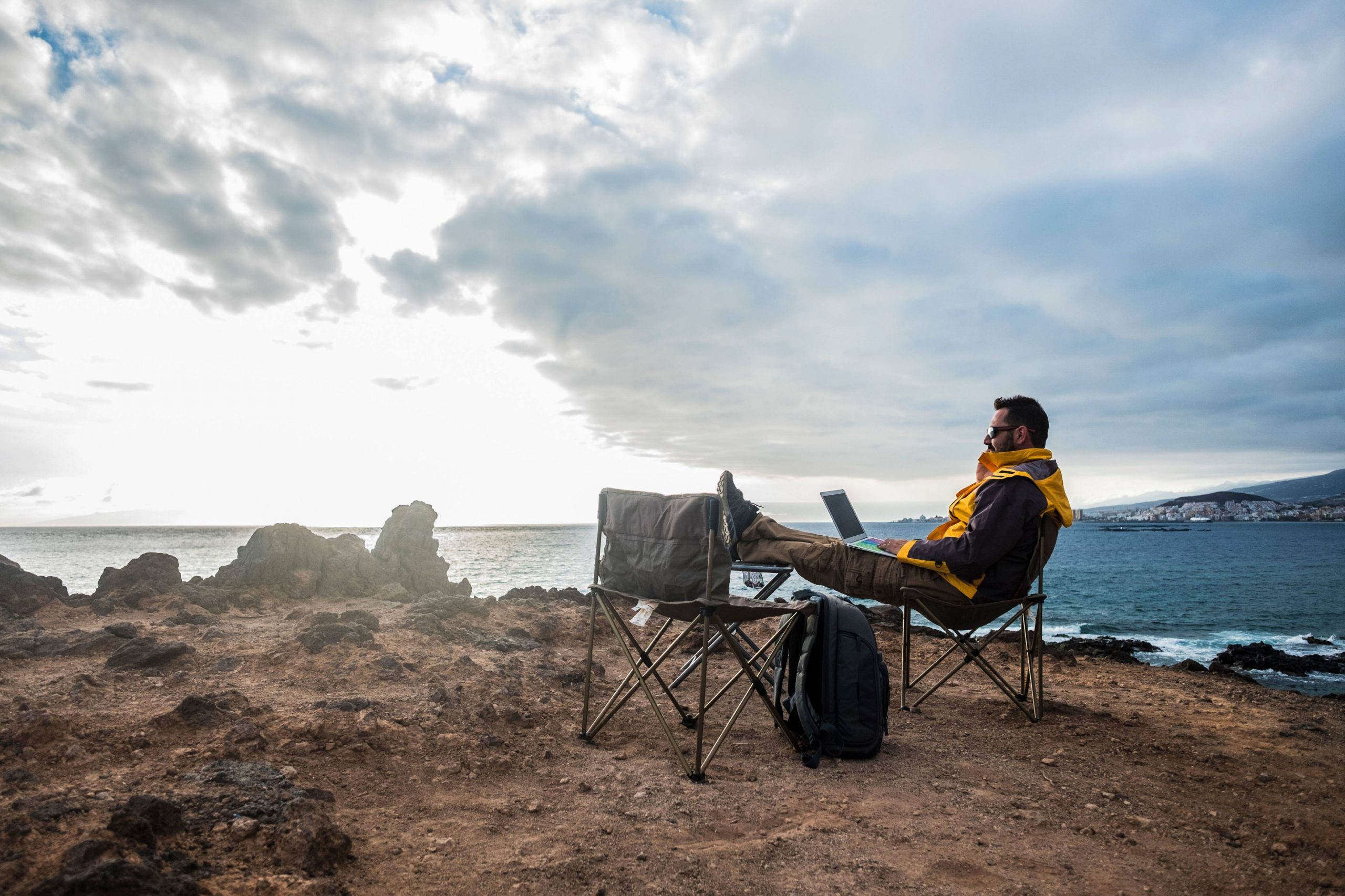The digital nomad lifestyle has gained massive popularity in recent years, with more people embracing remote work and the freedom to travel. While working from exotic locations sounds appealing, it comes with its own set of challenges. Before packing your bags and heading off to work from a beach in Bali, it’s essential to weigh the pros and cons and understand how to make the lifestyle sustainable.

Freedom and Flexibility
One of the biggest perks of being a digital nomad is the ability to work from anywhere. You’re no longer tied to an office, meaning you can explore new cities, immerse yourself in different cultures, and create your ideal work environment. Whether you prefer a quiet café in Paris or a co-working space in Mexico City, the choice is yours.
Lower Cost of Living
Many digital nomads choose destinations where their income stretches further. Countries like Thailand, Vietnam, and Colombia offer affordable living costs compared to major U.S. cities. This allows nomads to enjoy a high quality of life while spending less on rent, food, and transportation.
Exposure to New Cultures
Living in different countries broadens your perspective and helps you develop cultural awareness. You’ll learn new languages, try different cuisines, and experience life in ways you never could by staying in one place. This can be both personally fulfilling and professionally valuable, as it builds adaptability and communication skills.
No Commute or Office Politics
Say goodbye to rush hour traffic and office drama. Working remotely eliminates long commutes, giving you more time for personal activities. You also avoid unnecessary office distractions, allowing you to focus on productivity rather than workplace politics.
Income Stability Can Be Uncertain
Unless you have a remote job with a fixed salary, income stability can be a challenge. Many digital nomads rely on freelance work or contract jobs, which can fluctuate. This makes budgeting and financial planning crucial to avoid running out of funds while abroad. Having an emergency savings fund and multiple income streams can help mitigate this risk.
Time Zone Challenges
Working across different time zones can make it difficult to maintain a consistent schedule, especially if your employer or clients are in a different part of the world. Late-night or early-morning meetings may become the norm, affecting work-life balance. Using scheduling tools and setting clear expectations with employers or clients can help manage this challenge.
Work-Life Balance Can Blur
When your office is a laptop, it can be tempting to work at all hours, especially when traveling to new places. Some digital nomads struggle with overworking or failing to set clear boundaries between work and leisure. Establishing a daily routine, setting strict work hours, and designating a workspace can help maintain a healthy balance.
Loneliness and Lack of Community
Constantly moving from place to place can make it difficult to form long-term relationships. Many digital nomads experience loneliness, especially if they don’t actively seek out social connections. Joining co-working spaces, attending digital nomad meetups, or using apps like Meetup and Nomad List can help build a sense of community.
How to Find Remote Jobs
If you’re considering the digital nomad lifestyle, securing a stable remote job is key. Websites like We Work Remotely, Remote.co, and FlexJobs list opportunities across various industries. Freelancing platforms like Upwork and Fiverr are great for those who want to offer specialized services, while LinkedIn can help you connect with companies that hire remote workers.
Managing Time Zones Effectively
Keeping track of time zones can be tricky when working remotely. Apps like World Time Buddy and Google Calendar help you schedule meetings efficiently. Communicating your availability with clients or employers in advance and planning work hours around their business hours can also make collaboration smoother.
Balancing Work and Travel
Traveling while working requires careful planning. Avoid overbooking travel days, as frequent movement can disrupt your workflow. Choose accommodations with reliable Wi-Fi, such as Airbnb rentals or co-living spaces designed for digital nomads. Sticking to a work schedule, even when tempted to explore, ensures you remain productive.
The Bottom Line
Becoming a digital nomad offers freedom, adventure, and the chance to work on your own terms. However, it also comes with challenges like income instability, time zone difficulties, and potential loneliness. Before making the leap, secure a reliable income source, plan for time zone differences, and set work-life boundaries. With the right strategy, the digital nomad lifestyle can be both fulfilling and sustainable.









